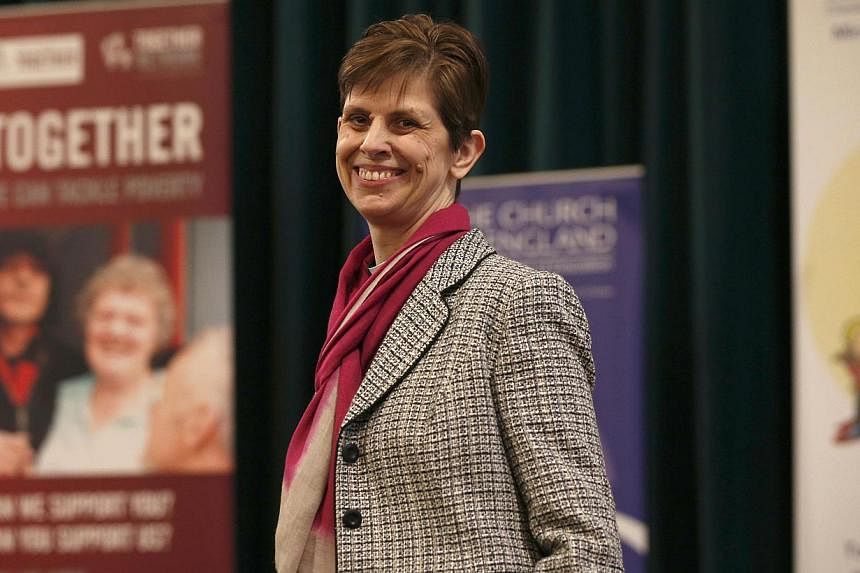STOCKPORT, United Kingdom (AFP) - The Church of England on Wednesday named a saxophone-playing vicar with a taste for football as its first female bishop in a move hailed as an important step towards greater equality.
Libby Lane was named as the next bishop of Stockport after England's state church last month gave final approval to the dramatic change to its hierarchy following years of wrangling and division.
"It is an unexpected joy for me to be here today," Lane said after being named in Stockport, a town outside Manchester in north-west England.
"It's a remarkable day for me and I realise an historic day for the church. I'm honoured and thankful to be called to serve as the next bishop of Stockport and excited, though not a little daunted, to be trusted with such a ministry.
"I'm very conscious of those recognised and unrecognised who have prayed and worked and struggled for this moment."
The church last month ended a tortuous process allowing for female bishops that set liberal and conservative believers at odds.
The Church of England backed the introduction of female priests in 1992 and the first were appointed two years later.
They now make up one-third of the clergy.
The Church of England is the mother church of the global Anglican Communion, which has around 85 million followers in more than 165 countries.
Other Anglican churches around the world have been appointing female bishops for years.
The first was appointed in the United States in 1989 and there are now more than 30 worldwide, in countries such as Australia, Canada, Cuba, New Zealand and Swaziland.
The Archbishop of York, John Sentamu, said he would preside over Lane's consecration in York Minster - the largest gothic cathedral in northern Europe - on January 26.
He said she brought a "wealth of experience" with her.
Sentamu said Desmond Tutu, the archbishop emeritus of Cape Town, had written to him in the last week saying: "Wonderful that you over there will soon have women bishops. Yippee! I know you have pushed for this for a long time. Yippee again!"
'MANY WILL FOLLOW'
Lane was educated at the University of Oxford and became a priest in 1994.
Her interests include learning to play the saxophone, supporting Manchester United Football Club, reading and doing cryptic crosswords.
Her husband, George, is also a minister. They were one of the first married couples in the church to be ordained together.
He is a chaplain at Manchester Airport.
Lane said her nomination was "not simply a gesture".
"I've no doubt that many will follow on from me," she said.
But Rod Thomas, chairman of the conservative evangelical Reform group which campaigned against female bishops, said the appointment "grieves us".
As bishop of Stockport, Lane will serve as a suffragan (assistant) bishop in the Diocese of Chester.
Prime Minister David Cameron's office announced that Queen Elizabeth II, the supreme governor of the Church, had approved Lane's nomination.
"I would like to congratulate Elizabeth Lane on her appointment as Suffragan See of Stockport and in doing so becoming the first woman bishop in the Church," Cameron said in a statement.
"This is an historic appointment and an important step forward for the Church towards greater equality in its senior positions."
He added that the government would bring forward legislation this week that would allow women bishops to sit in parliament's upper House of Lords.
Some 26 bishops are allowed to sit in the chamber, comprised of the five most senior clergy and the 21 diocesan bishops who have served the longest.
The Church of England separated from the Roman Catholic Church in 1534.
It claims that more than 40 per cent of people in England regard themselves as belonging to the Church of England.

